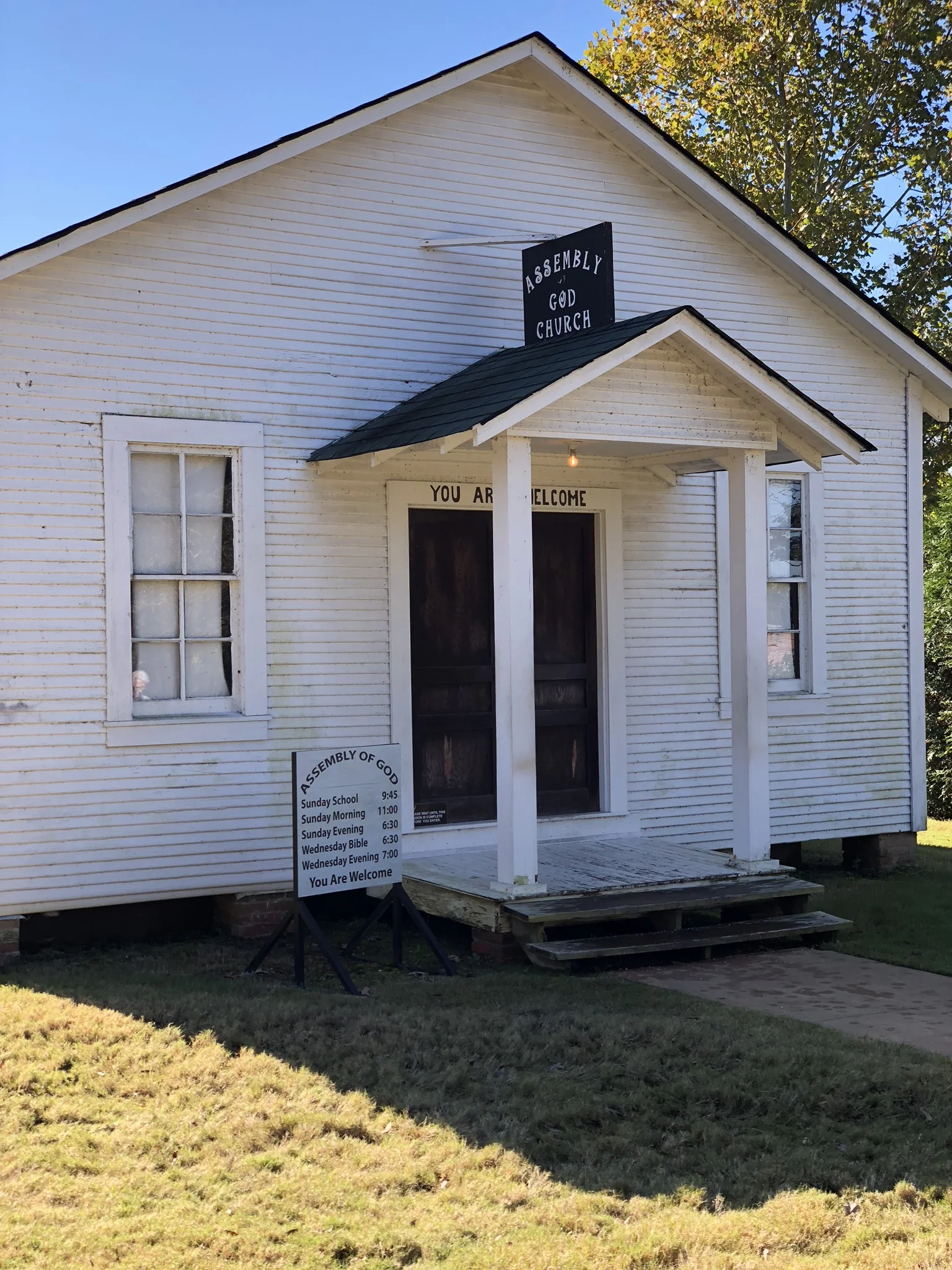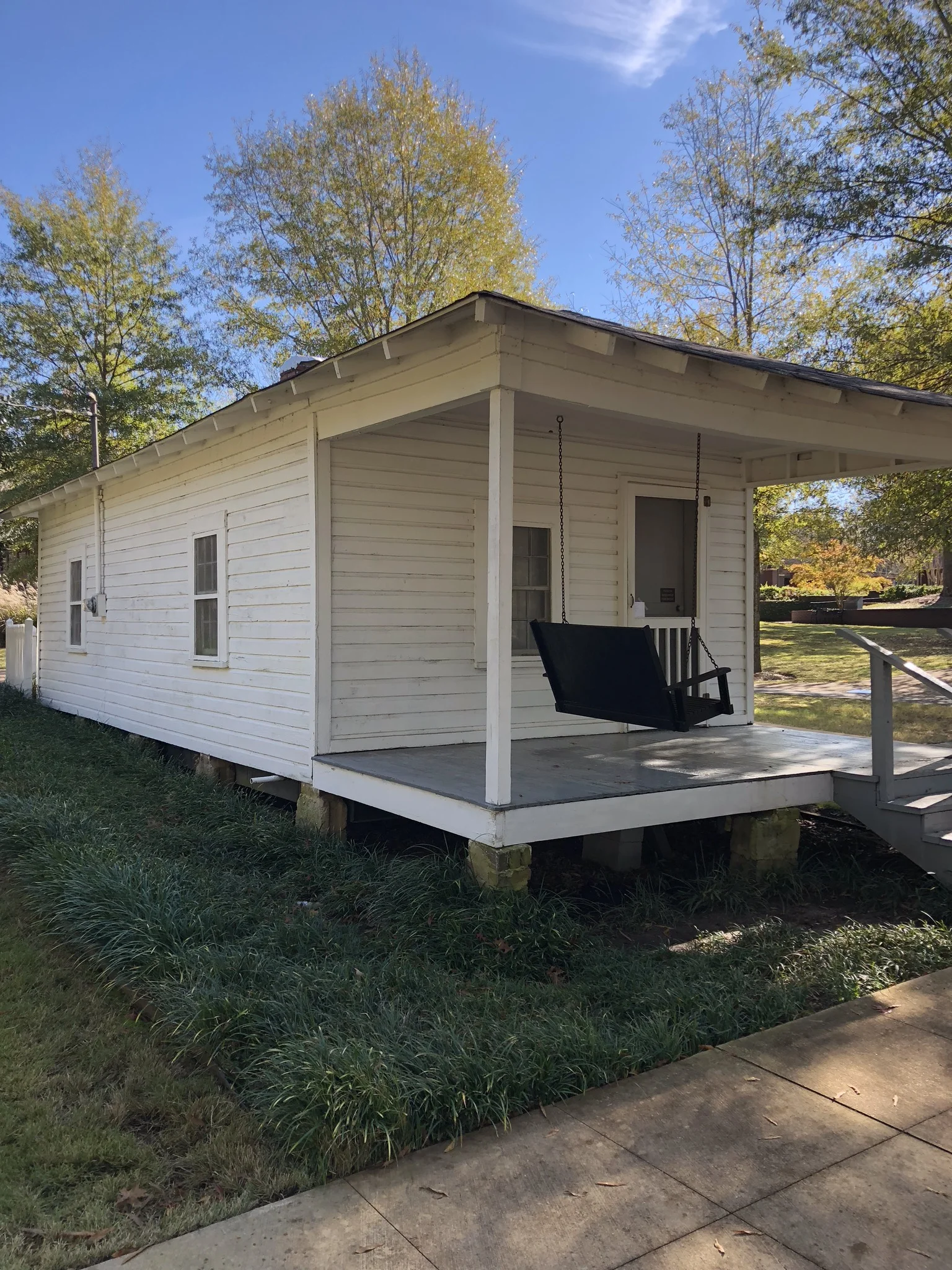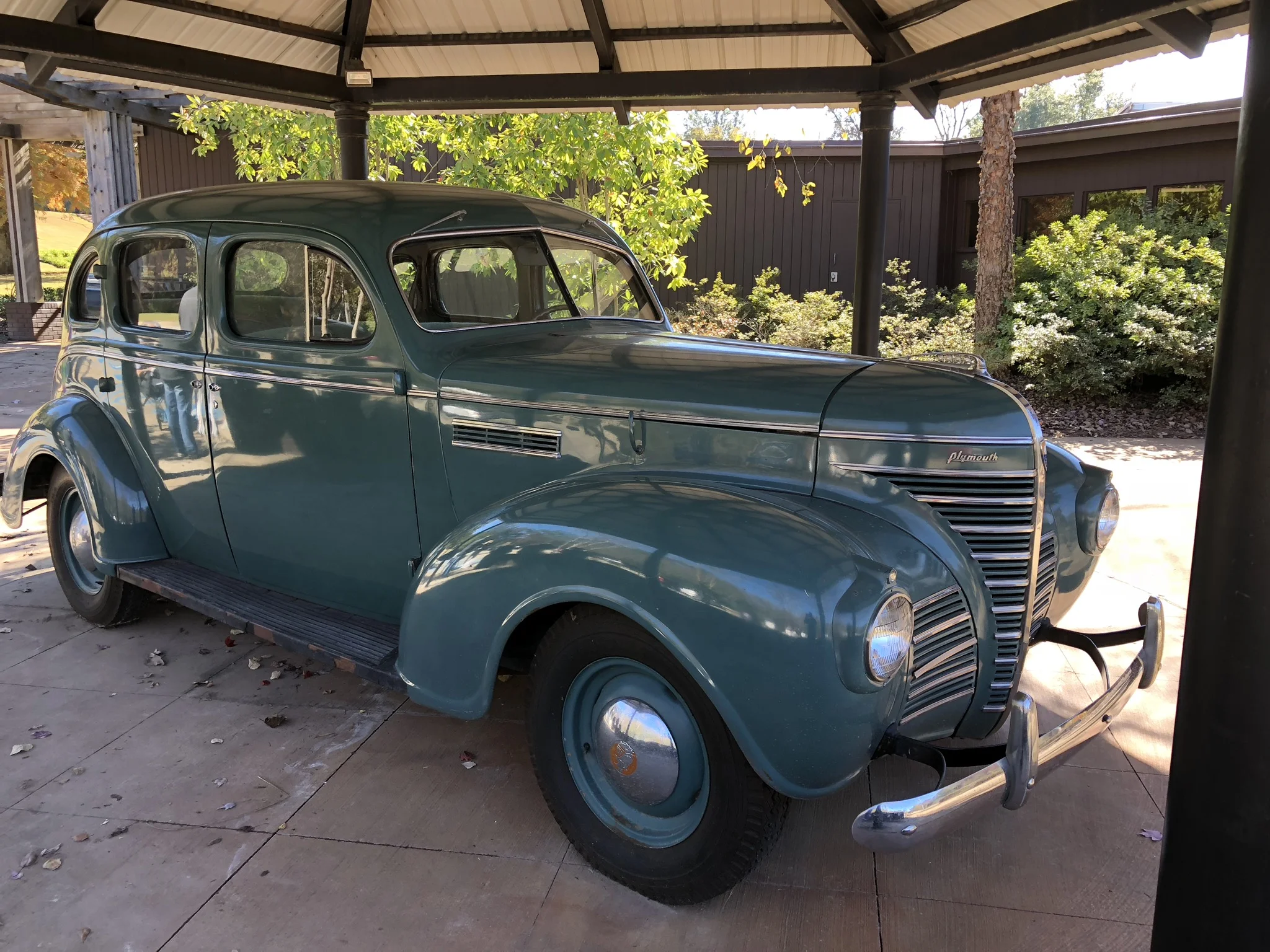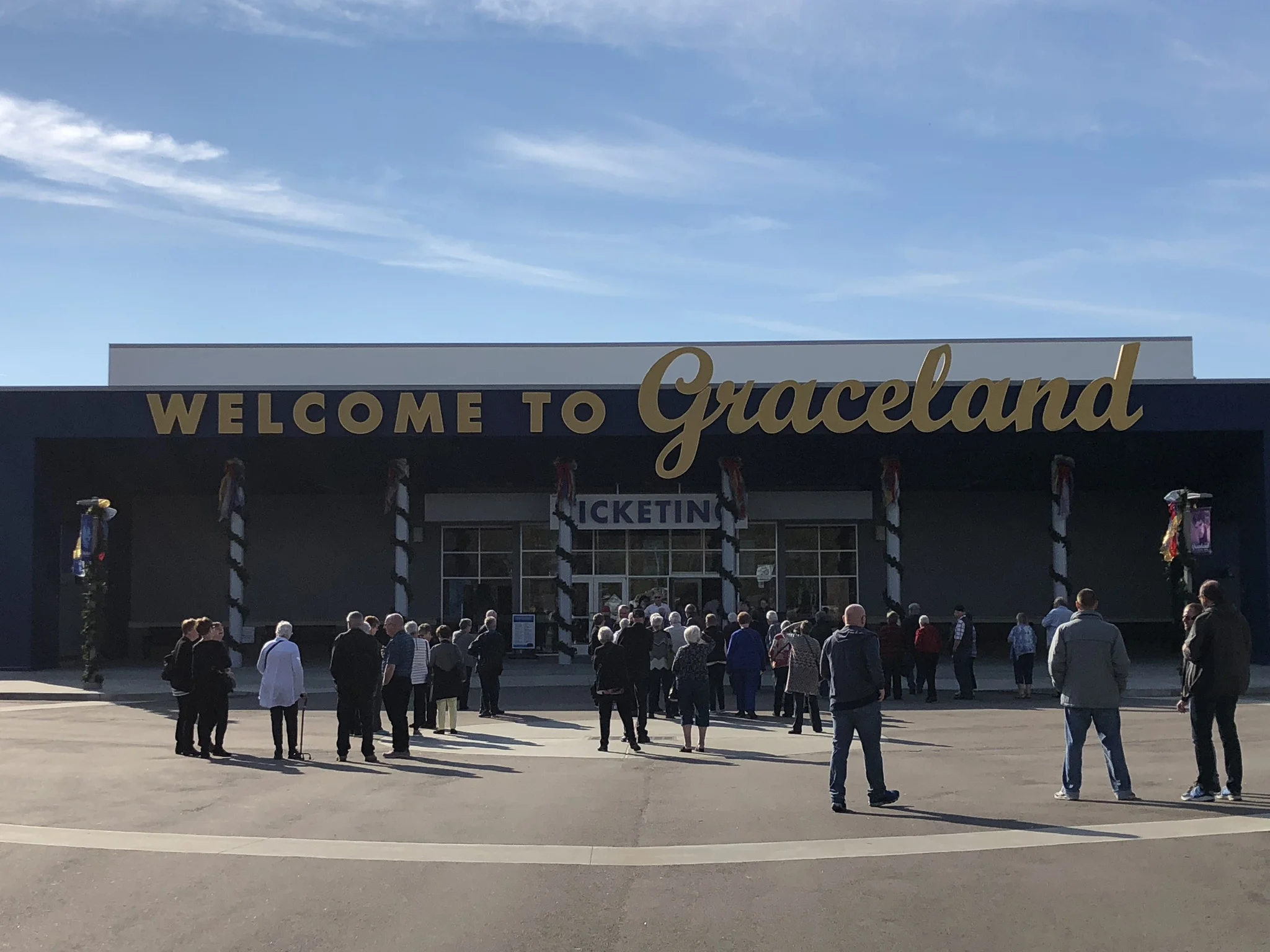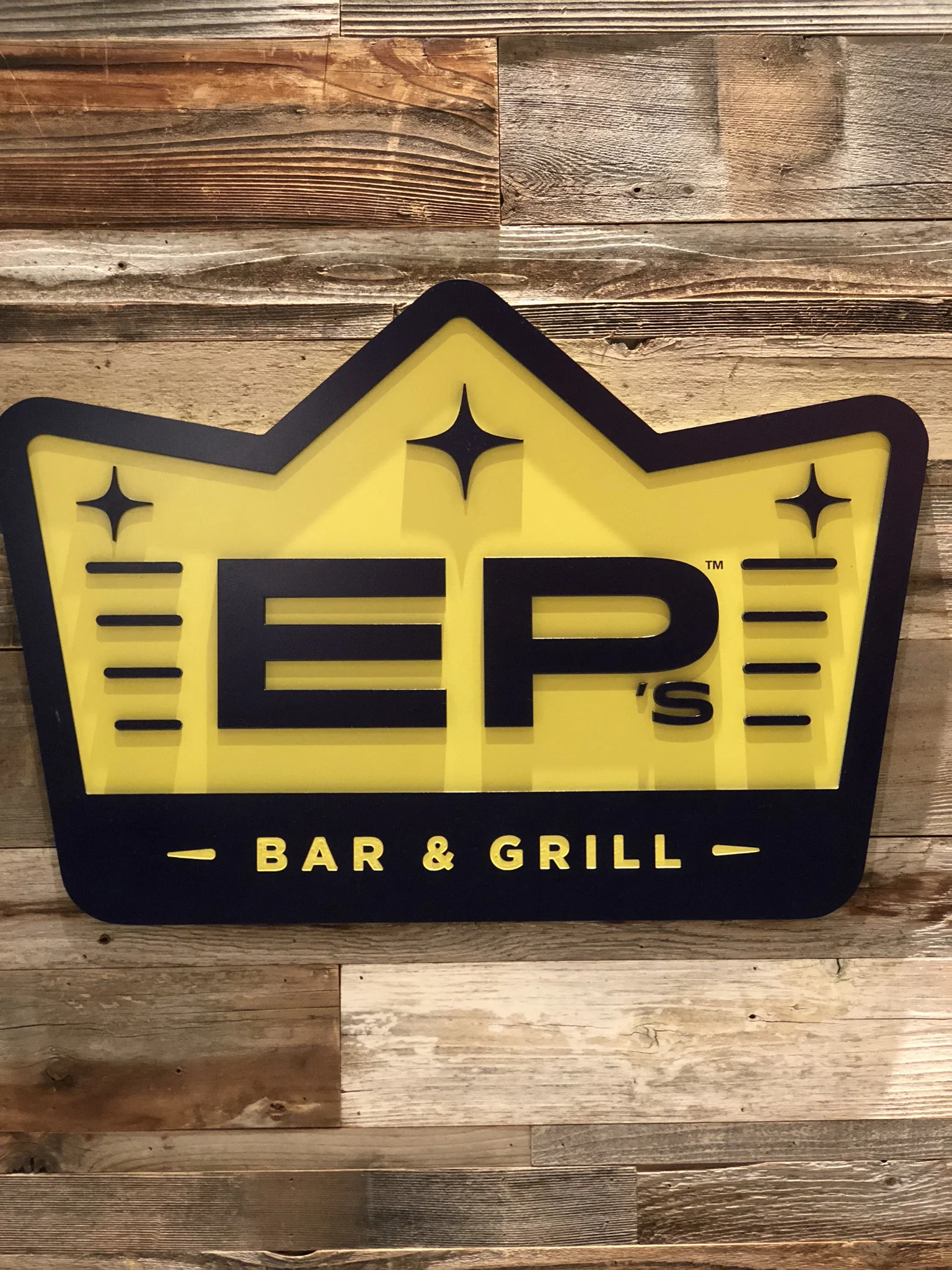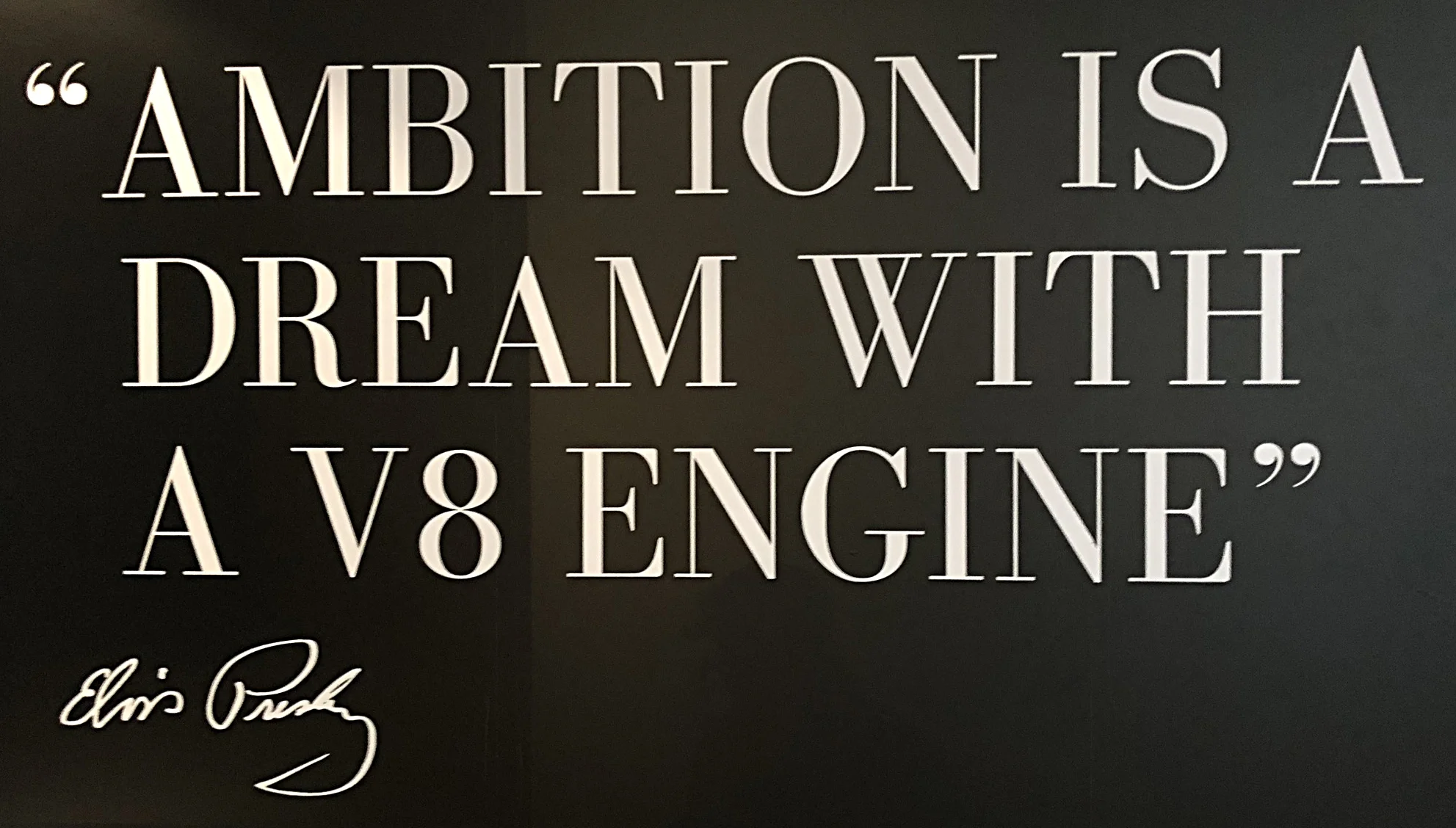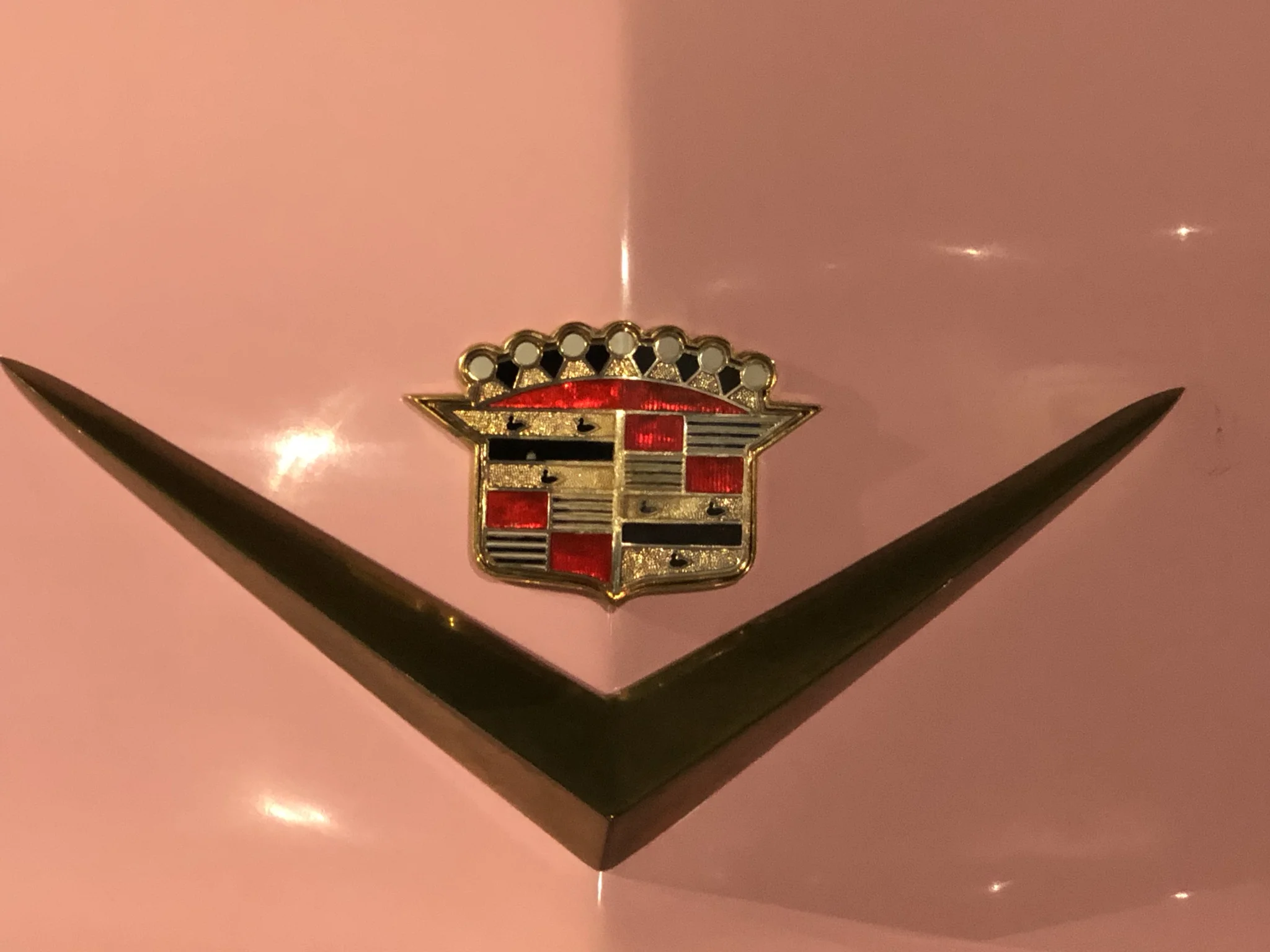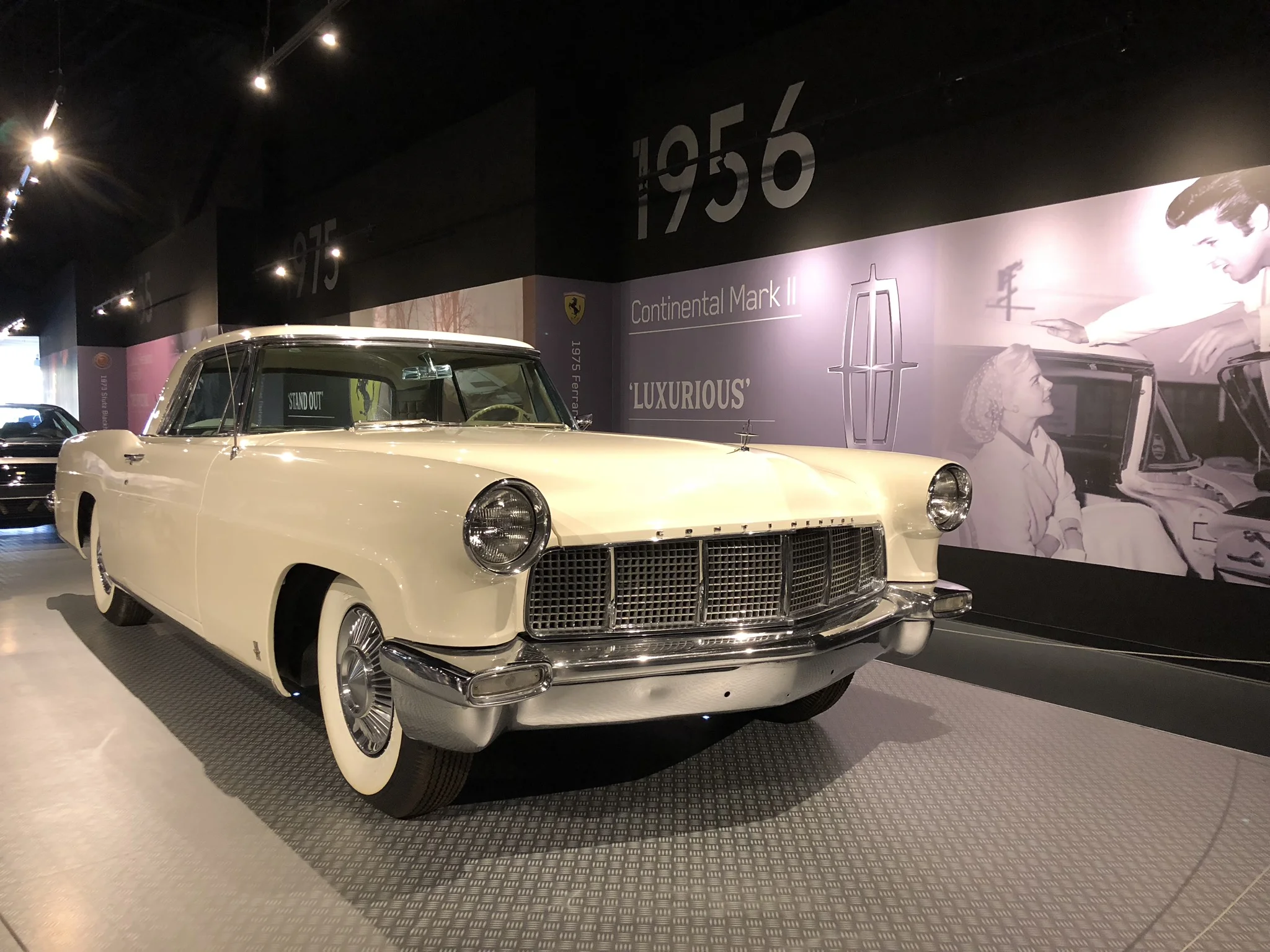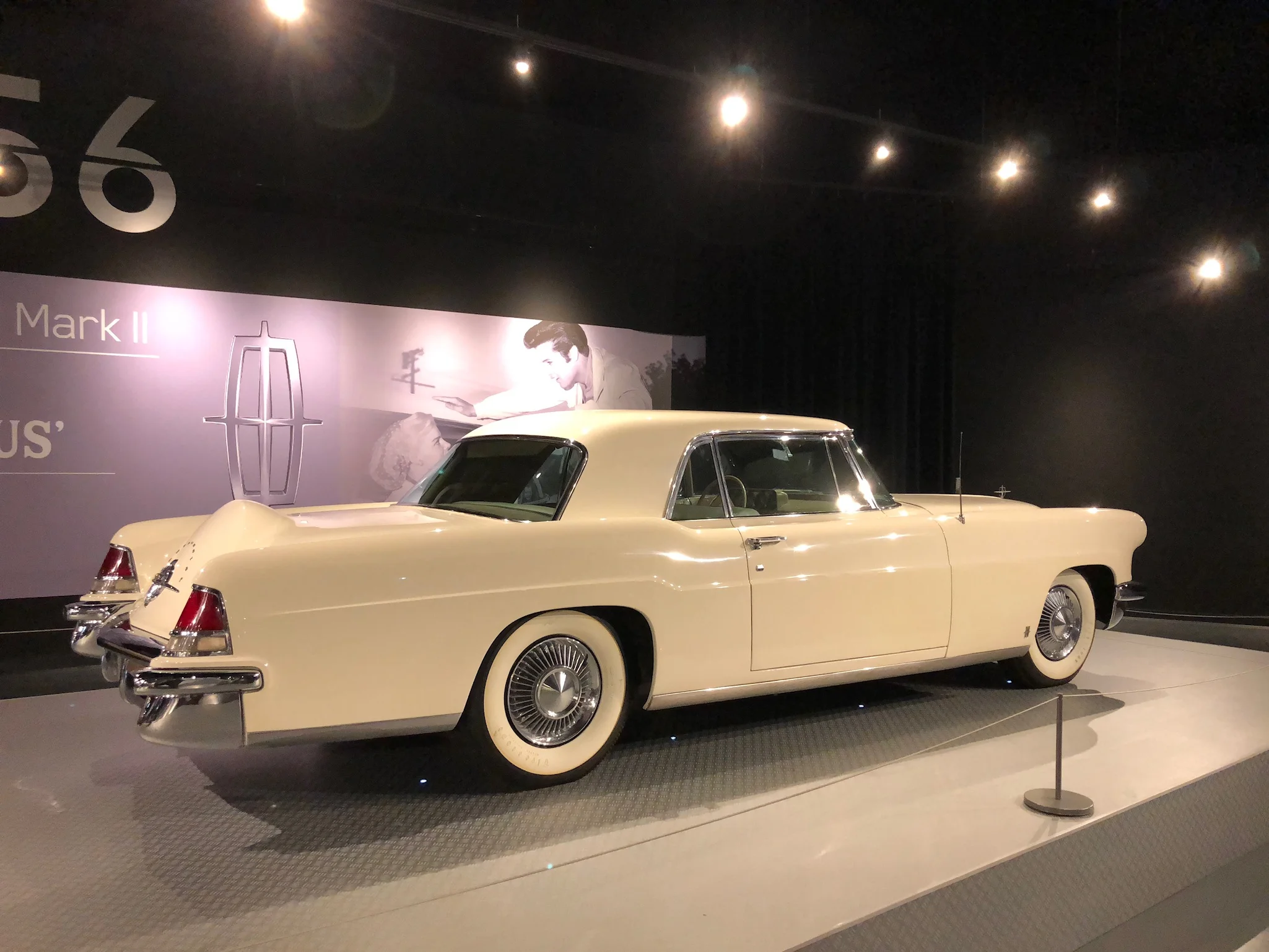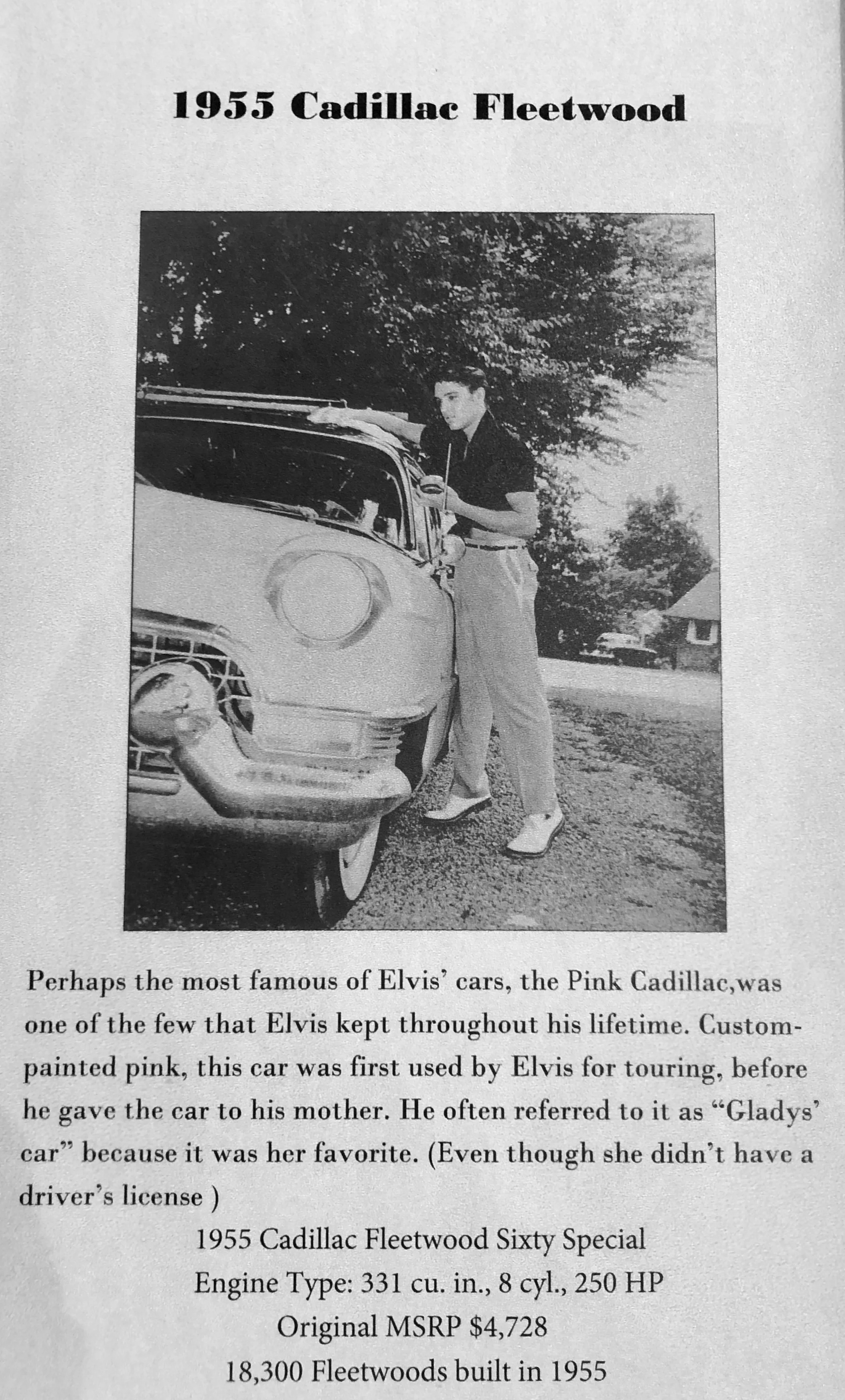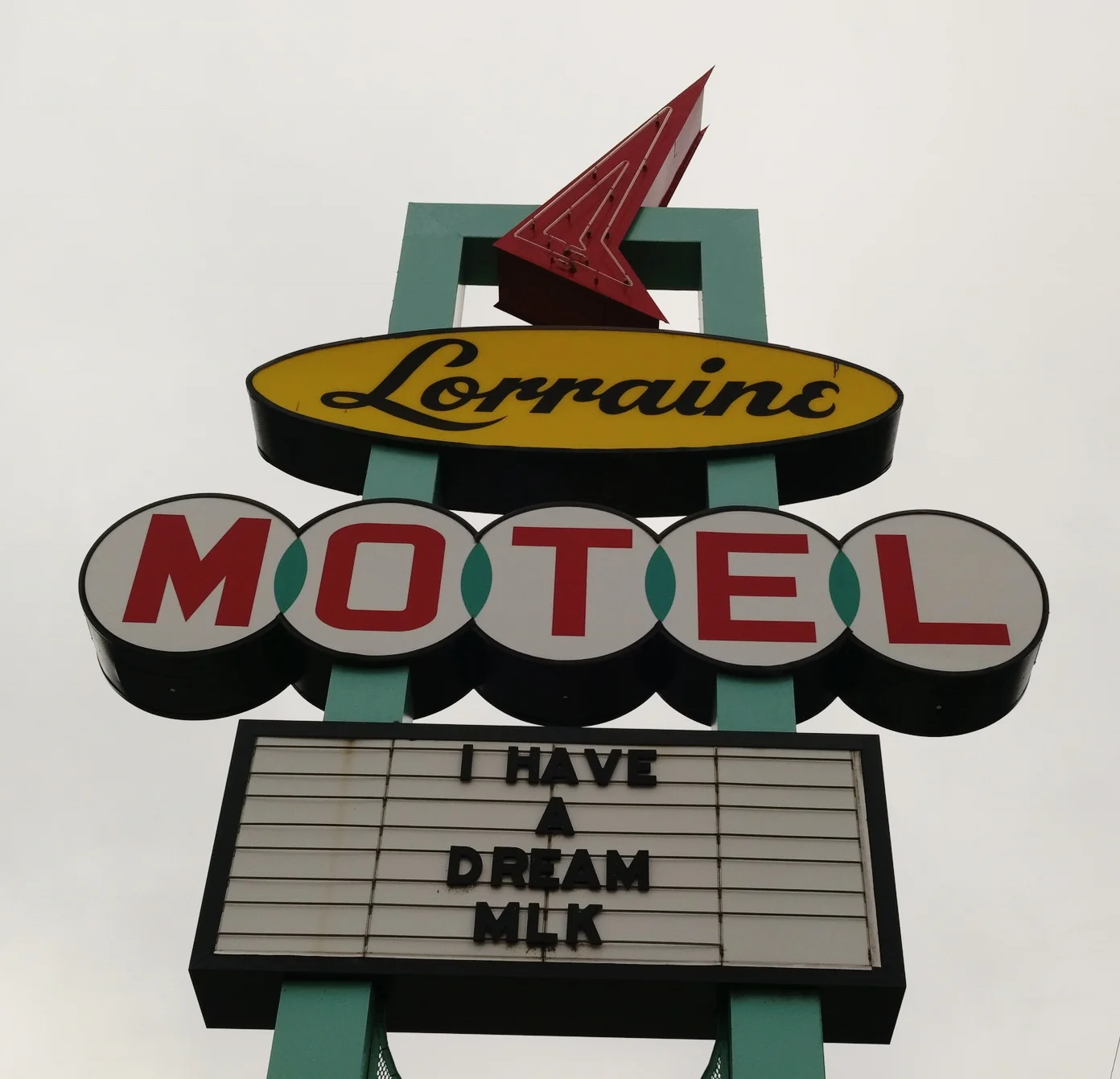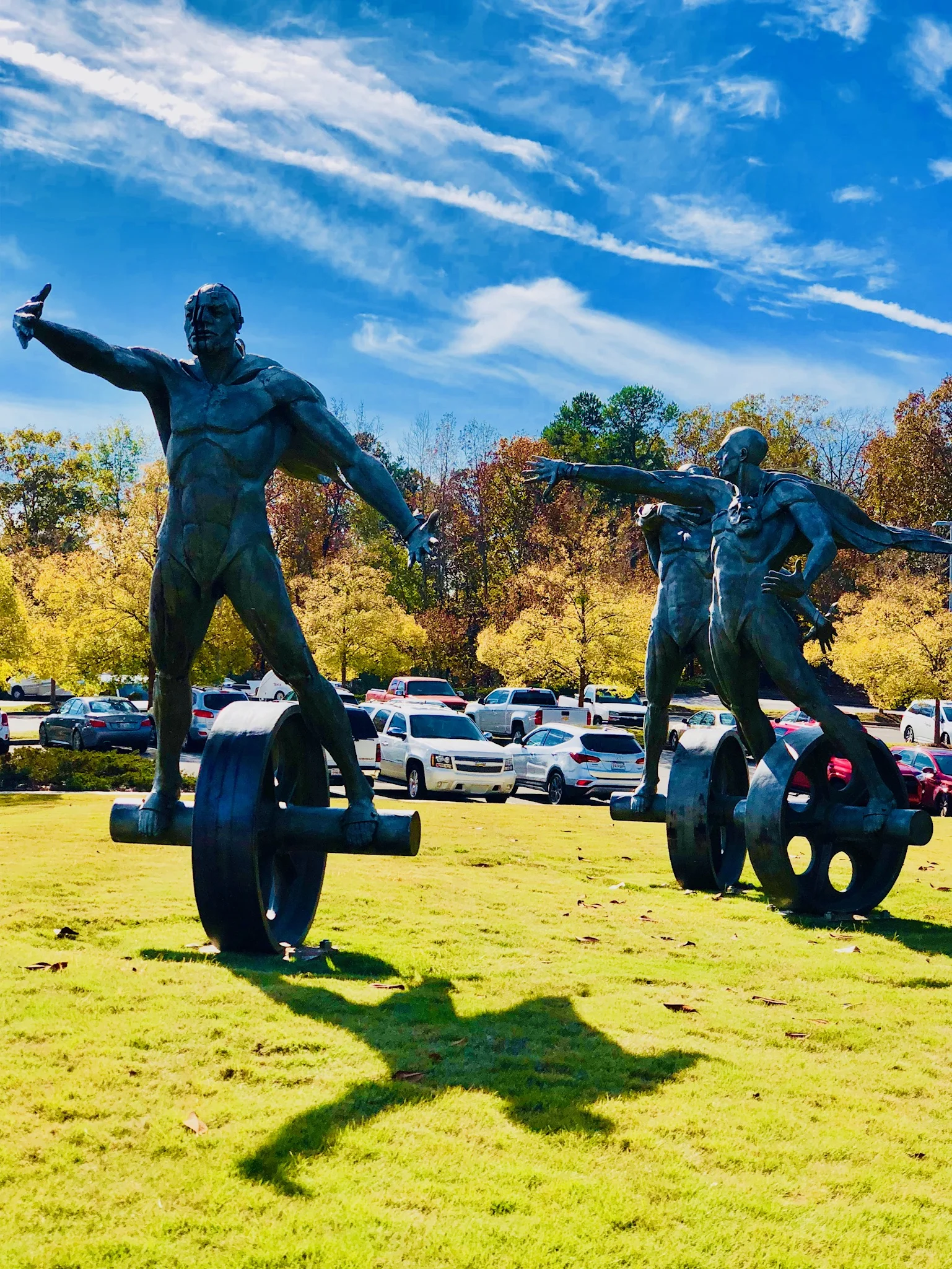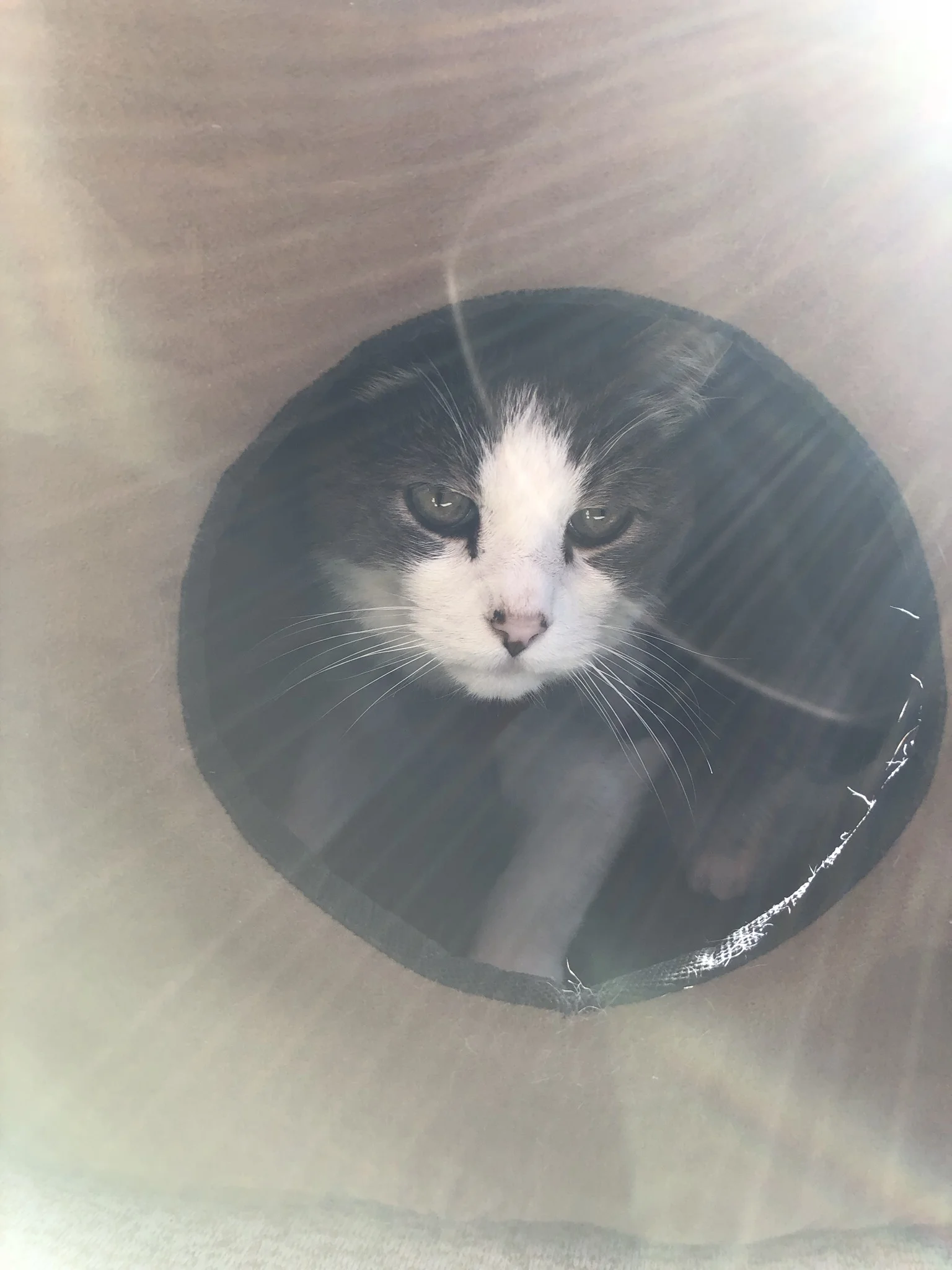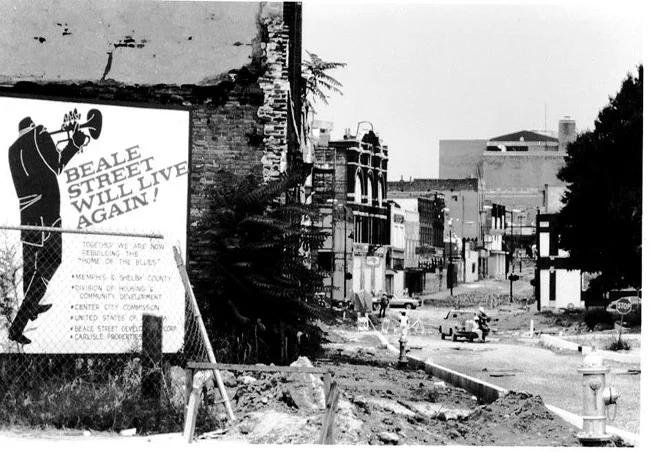Elvis Presley, the King
True confession. I have been obsessed with Elvis Presley for as long as I can remember. I had a life sized Elvis cardboard poster in my bedroom and had watched almost all of his movies, several times, even the really bad ones. I remember sitting in my father’s living room crying on August 16, 1977 when I learned he had died. I was only 12, so my obsession was in spite of not being in the Elvis generation. Although, given that he was the King, he transcended generations.
Given my Elvis mania, there was no doubt that we were going to visit Tupelo, Mississippi where Elvis was born and raised. Graceland was going to be a key stop as well. It is always dangerous to learn too much about our heroes, because human beings are complex and likely to disappoint. I was willing to risk it!
Tupelo and the Elvis birthplace were a revelation in more than one way. The house and the family story give such an insight into Elvis, the person, but also the poverty and challenges of the Deep South during the depression. Elvis’ father borrowed $180 to build the two room home, affectionately dubbed a shotgun house, because you can shoot a shotgun from from the front door straight through the back. The house shared an outhouse with several other houses in the neighborhood. Unfortunately, Elvis’ father had some trouble and went to prison. When he got out, the house and the car were repossessed and the family moved to a poorer part of town. I can’t even imagine what the poorer side of town looked like.
The Presley family was Pentecostal, and the small church they attended has been restored and moved next to his restored family home. His singing career certainly started in the church. If you visit his birthplace, and you are not Pentecostal, I would suggest skipping the church. The video had little to do with Elvis, and much to do with the church service.
Elvis Presley was on the one hand a humble only son who cared for his mama and dad, and at the same time a kid in the candy store with his newfound wealth. He provided for his family, and bought cars, and planes, and gadgets, flashy clothes. The 70s were tacky, and Elvis’ Graceland was even more so, but in a good way!
None of that stopped him from being incredibly generous. He didn’t just donate his time and funds to charities. He would read the paper and see people suffering and send them money. He gave his secretary his MG from the movies. He couldn’t resist making life better for people because he knew what it was like to be poor.
Graceland seems so underwhelming if you judge it by today’s celebrity standards. Having just visited his birthplace, and realizing that this was the 70s, and Graceland was an elegant Southern home/mansion, it is clear why he loved it so. Visiting Graceland is quite an experience. You start across the street at the Graceland visitor center, which houses his planes, his cars, the archives and exhibits, multiple gift shops, and Vernon’s steak house (named for his dad) and Gladys’ diner (named for his mom). You get on a shuttle bus, put on your ear phones and your personal IPAD and head off to tour the mansion. The tour does not include upstairs as that was and is the private part of the mansion, and a place where Lisa Marie Presley and her children still visit.
Elvis is buried at Graceland, along with his mother, father, and grandmother. In spite of the crowd and the tour atmosphere, you feel that you are visiting a family home, not a celebrity property. Perhaps because he died in the 70s, perhaps because he was still a humble Southerner, who knows? The house reflects the husband, father, friend, as well as the public figure. Elvis loved TVs, music, golf carts, horses, and reading.
Elvis was an amazing singer and performer who transformed music and our culture. He was an imperfect father and husband, sure. But through sheer passion and determination, Elvis rose up from extreme poverty to become one of the greatest cultural icons of the twentieth century without losing his humanity and compassion.
For all his contributions to music, including the King of Rock n Roll fame, he only won Grammys for his gospel music. I find comfort with the lyrics to one of his greatest gospel hits when I think of Elvis wandering Graceland at night:
You'll Never Walk Alone
“When you walk through a storm hold your head up high
And don't be afraid of the dark.
At the end of a storm is a golden sky
And the sweet silver song of a lark.
Walk on through the wind,
Walk on through the rain,
Tho' your dreams be tossed and blown.
Walk on, walk on with hope in your heart
And you'll never walk alone,
You'll never, ever walk alone.
Walk on, walk on with hope in your heart
And you'll never walk alone,
You'll never, ever walk alone.”
Lisa Marie and her son Benjamin…the force is strong with this one.
Mom’s
Riding in my Pink Cadillac…


